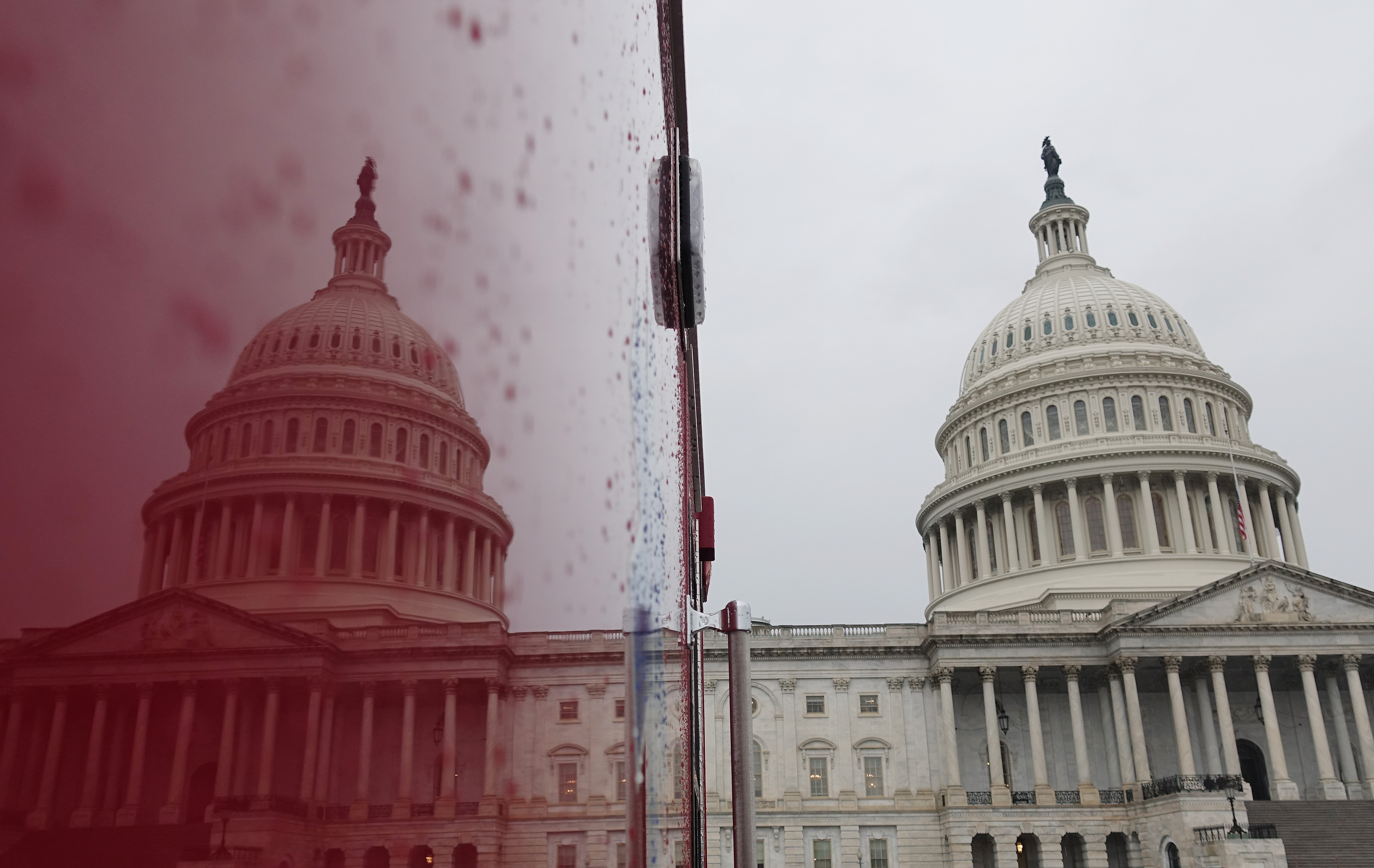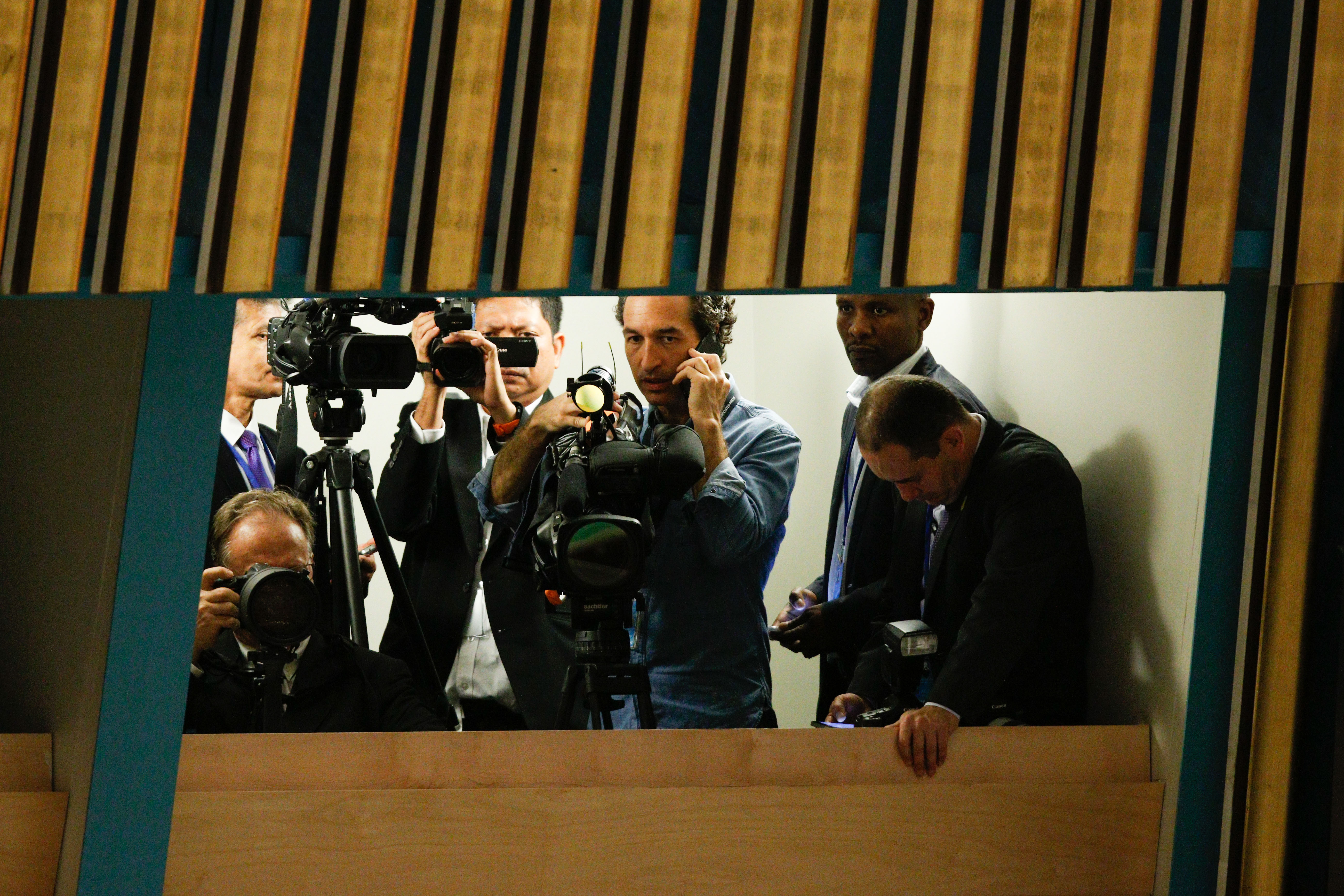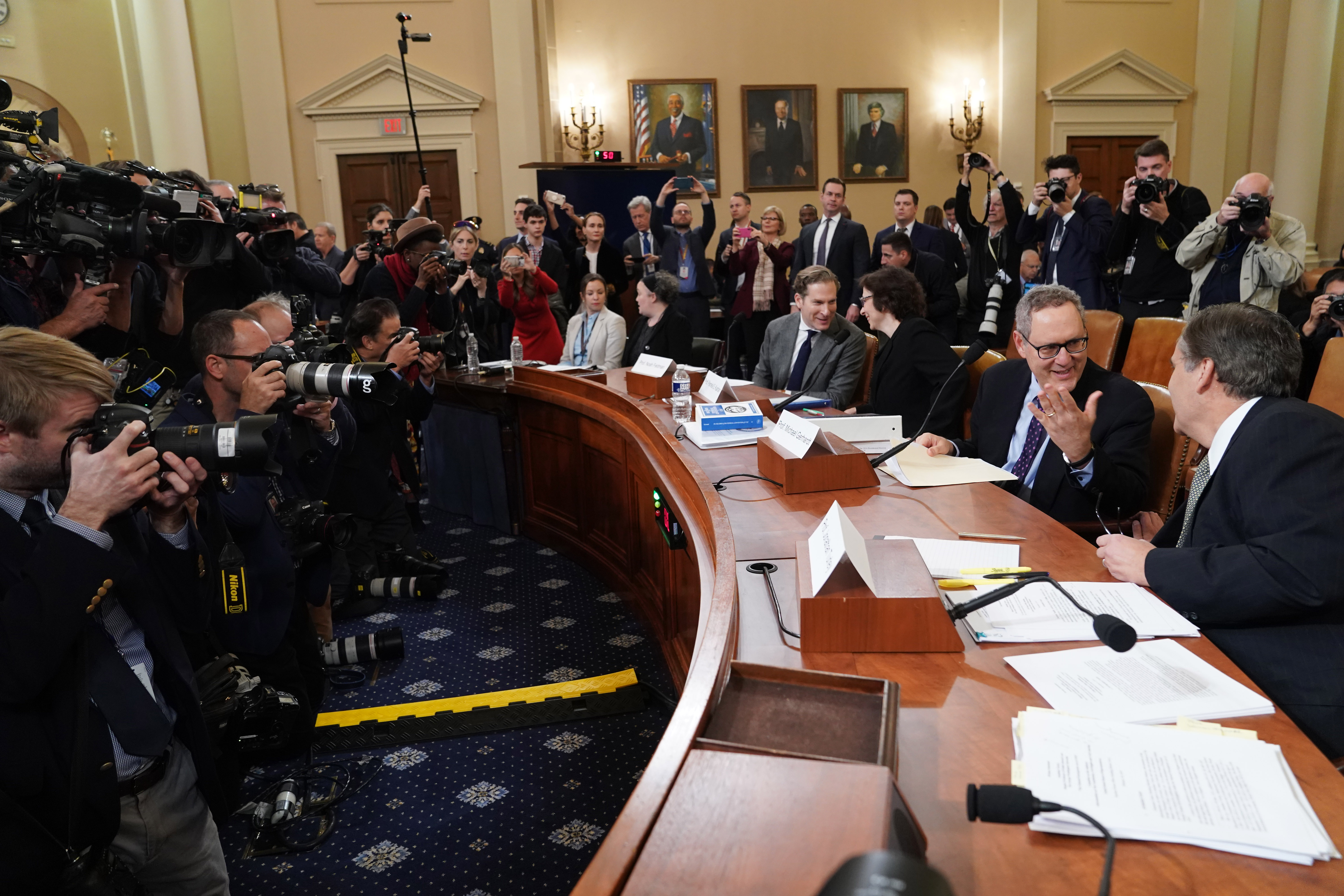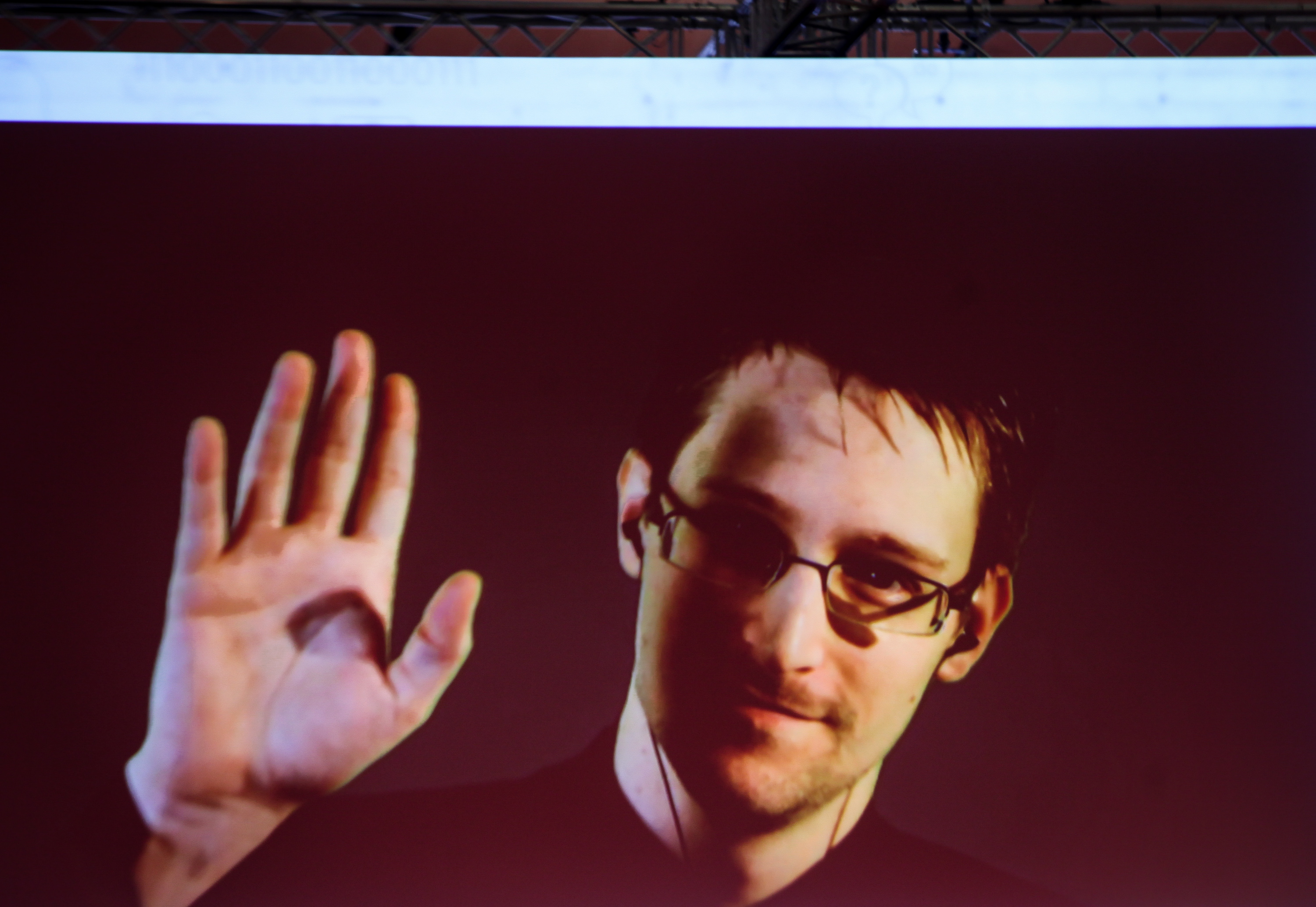
Photo taken on Dec. 28, 2018 shows the reflection of the Capitol Hill on an ambulance's door in Washington D.C., the United States. (Xinhua/Liu Jie)
Washington loves to brag about press freedom. The facts, however, tell us otherwise.
BEIJING, March 5 (Xinhua) -- The U.S. State Department has recently announced a cap on the number of staffers for Chinese media based in the United States.
Such a peremptory move represents the latest step in an escalating political crackdown by Washington on Chinese media outlets in the United States, and has seriously disturbed the normal reporting activities of these organizations.
Furthermore, the policy tarnishes the credibility of these news outlets, hinders regular people-to-people exchanges, and fully exposes the two-faced nature of America's so-called freedom of the press.
Washington loves to brag about press freedom. The facts, however, tell us otherwise.

Journalists work inside the media booth during a UN plenary meeting at the UN headquarters in New York, the United States, on Sept. 19, 2016. (Xinhua/Li Muzi)
"Freedom of the press is guaranteed only to those who own one," A. J. Liebling, a writer for The New Yorker, once said, accurately revealing how in the United States freedom of press is reserved for deep-pockets, vested interests groups and the powerful.
In recent years, this U.S. government has been on a systemic offensive against press freedom and media bodies, seeking to portray those unfriendly media as "fake news" makers.
While Washington has kept a tight leash on media reporting domestically, it has used the news media as a weapon against countries around the world it deems either unfriendly or challenging.

Journalists take photos of the first public hearing held by the U.S. House Judiciary Committee on Capitol Hill in Washington D.C., the United States, on Dec. 4, 2019. (Xinhua/Liu Jie)
U.S. daily Wall Street Journal recently published an article, tagging China as the "real sick man of Asia" while the country was bravely fighting the novel coronavirus outbreak.
U.S. Secretary of State Mike Pompeo has insisted on defending the newspaper's ignorance and racism, while ignoring the opposition of the Chinese government and its people.
And in the U.S. media's coverage of countries like Syria and Venezuela, the absence of unbiased reporting and journalistic objectivity have been too conspicuous to deny.

Edward Snowden is seen on the screen during a live remote interview at CeBIT 2015, the world's top trade fair for information and communication technology, in Hanover, Germany, on March 18, 2015. (Xinhua/Zhang Fan)
These abuses of its superpower status have unequivocally revealed Washington's Cold War mentality and ideological prejudice. For those harboring a zero-sum mentality in Washington, China is a threat that needs to be dealt with.
In a newly released book "Fake Fear: America and China Relations," author Xin Jiyan argues that "Washington is currently besieged by hawkish policy makers, who consider China as indeed a cause for fear ... although China-bashing is not new, it is increasingly jeopardizing normal exchanges, mutual trust and cooperation between China and the United States."
The United States has long boasted about its own brand of democracy and freedom, a "Shining city on a hill."
Yet such self-aggrandizement only serves to bolster Washington's naked hegemonic desire to rule the world supreme, utilizing domestic news media in the process. It reveals that America's resolute belief in freedom of the press is anything but. ■



